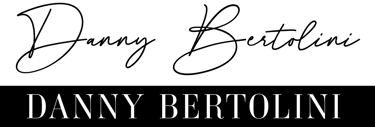How to Prepare for Your Mortgage Closing Day
Preparing for your mortgage closing day involves reviewing documents, gathering necessary paperwork, understanding closing costs, and conducting a final walkthrough to ensure a smooth process.
6/26/20243 min read


Mortgage closing day is the final step in the home buying process, where you sign all the necessary documents and officially become a homeowner. It’s an exciting milestone, but it can also be overwhelming if you’re not adequately prepared. Here’s a comprehensive guide to help you prepare for your mortgage closing day and ensure everything goes smoothly.
1. Understand What Closing Day Involves
Closing day involves the finalization of your mortgage and the transfer of property ownership from the seller to you. You’ll sign numerous documents, pay closing costs, and receive the keys to your new home. The process typically takes place at a title company, attorney’s office, or escrow office.
2. Review Your Closing Disclosure
Three days before your closing, you’ll receive a Closing Disclosure form from your lender. This document outlines the final terms and costs of your mortgage. Review it carefully to ensure all the details match what you’ve agreed upon, including:
Loan amount
Interest rate
Monthly Payment
Closing costs
Taxes and insurance
Compare the Closing Disclosure with your Loan Estimate to check for any discrepancies. If you have any questions or find any errors, contact your lender immediately.
3. Gather Your Documents
Bring all necessary documents to the closing. This typically includes:
Photo ID: A government-issued photo ID, such as a driver’s license or passport.
Proof of Homeowners Insurance: Proof that you have secured homeowners insurance for your new property.
Closing Disclosure: A copy of your Closing Disclosure for reference.
Funds for Closing Costs: A cashier’s check or proof of wire transfer for the closing costs, down payment, and any other fees due at closing.
Sale Agreement: A copy of the purchase agreement between you and the seller.
Any Other Required Documents: Any additional documents your lender or title company has requested.
4. Understand the Closing Costs
Closing costs typically range from 2% to 5% of the purchase price of the home. They include various fees, such as:
Loan Origination Fee: Charged by the lender for processing the loan.
Appraisal Fee: The cost of having the property appraised.
Title Insurance: Protects against future claims to the property’s title.
Escrow Fees: Charged by the escrow company for handling the closing.
Prepaid Costs: Property taxes, homeowners insurance, and mortgage interest.
Make sure you have the funds available to cover these costs, either through a cashier’s check or wire transfer, as personal checks are usually not accepted.
5. Conduct a Final Walkthrough
Schedule a final walkthrough of the property 24 to 48 hours before closing. This is your last chance to ensure the home is in the agreed-upon condition and that any requested repairs have been completed. Check that:
All appliances and fixtures are working.
There is no new damage to the property.
All agreed-upon repairs have been made.
The property is clean and empty.
If you find any issues during the walkthrough, address them with your real estate agent or attorney before closing.
6. Know What to Expect at Closing
On closing day, you’ll meet with your closing agent, who will guide you through the process. Here’s what to expect:
Signing Documents
You’ll sign a stack of documents, including:
Promissory Note: Your promise to repay the loan.
Mortgage or Deed of Trust: Secures the loan with the property as collateral.
Closing Disclosure: Finalizes the terms of the loan.
Settlement Statement: Itemizes all the costs and fees associated with the sale.
Reviewing Documents
Take your time to review each document carefully before signing. Don’t hesitate to ask questions if you’re unsure about anything.
You’ll provide the funds for your closing costs, down payment, and any other fees due at closing. This is typically done through a cashier’s check or wire transfer.
Receiving Keys
Once all the documents are signed and the funds are transferred, you’ll receive the keys to your new home.
7. After Closing
After closing, the deed and mortgage documents will be recorded with the local government to officially transfer ownership. Keep copies of all your closing documents in a safe place. You’ll also receive a payment schedule from your lender detailing your mortgage payment amounts and due dates.
Preparing for your mortgage closing day involves a careful review of documents, gathering necessary paperwork, understanding closing costs, and conducting a final walkthrough. By following these steps, you can ensure a smooth and stress-free closing process.
At Meadowbrook Financial Mortgage Bankers Corp., we’re here to guide you through every step of the home-buying process. If you have any questions or need assistance, don’t hesitate to contact us.
Hello, I’m Danny Bertolini, Vice President at Meadowbrook Financial Mortgage Bankers Corp.
Useful Links
Subscribe to our newsletter
© 2025 Danny Bertolini. All Rights Reserved. | Meadowbrook Financial Mortgage Bankers Corp. | NMLS #167666
